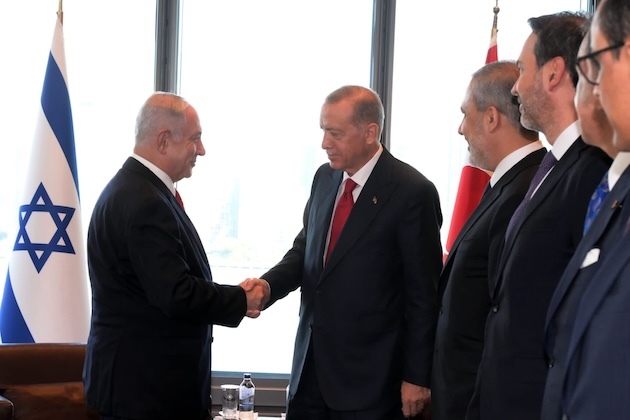2LT International News
Turkey issues arrest warrants for 37 Israeli officials over Gaza
Nov 9, 2025
The missive from the Istanbul Chief Public Prosecutor’s Office landed not with a bang, but with the dry, precise language of international law. Yet, its contents were explosive. In a statement released on Friday, Turkey announced it had issued arrest warrants for 37 senior Israeli officials, accusing them of “genocide and crimes against humanity” in the Gaza Strip.
At the top of the list, a name known across the globe: Israeli Prime Minister Benjamin Netanyahu. Alongside him, the prosecutor’s office named key architects of Israel’s military campaign: Defence Minister Yoav Gallant, National Security Minister Itamar Ben-Gvir, and Army Chief of Staff Lieutenant General Herzi Halevi. The statement also singled out the head of the Shin Bet, Ronen Bar, and the commander of the Israeli Air Force, Aluf Tomer Bar.
While the complete list of 37 was not published, the named individuals painted a clear picture of the scope of Turkey’s legal assault, targeting the highest echelons of Israel’s political, military, and security infrastructure.
The warrants were not merely symbolic; they were built on a specific catalogue of alleged atrocities. The prosecutor’s statement pointed to the October 17, 2023, attack on the al-Ahli Baptist Hospital, which it said claimed 500 lives. It cited the deliberate destruction of medical equipment and the imposition of a near-total blockade that denied civilians access to humanitarian aid. And with particular resonance in Ankara, it highlighted the bombing in March of the Turkish-Palestinian Friendship Hospital, a facility built by Turkey in Gaza, presented as a stark example of the systematic nature of the alleged crimes.
The reaction from Israel was swift and scathing. Foreign Minister Gideon Saar took to social media, dismissing the move as a “PR stunt.”
“Israel firmly rejects, with contempt, the latest PR stunt by the tyrant Erdogan,” he posted on X, framing the legal action as pure political theatre from Turkish President Recep Tayyip Erdogan.
From the other side, the Palestinian group Hamas welcomed the announcement. In a statement, they called it a “commendable measure [confirming] the sincere positions of the Turkish people and their leaders, who are committed to the values of justice, humanity and fraternity that bind them to our oppressed Palestinian people.”
The warrants from Istanbul echoed a similar, precedent-setting move from the International Criminal Court (ICC) almost a year prior, which had also targeted Netanyahu and Gallant for alleged war crimes. Turkey’s action, while operating through its own national courts, amplified that international legal pressure. It was a step further in a campaign Ankara has joined, having also aligned itself with South Africa’s case accusing Israel of genocide at the International Court of Justice (ICJ).
For the families of the more than 68,875 Palestinians killed and 170,679 wounded in the conflict, the warrants were a flicker of accountability in a distant courtroom. For the officials named, it meant a new, tangible restriction—the risk of arrest should they set foot on Turkish soil, a complication in a world of diplomatic travel and alliances.
In Ankara and Istanbul, it was declared a stand for justice. In Tel Aviv and Jerusalem, it was denounced as political vengeance. But in the quiet halls of the Istanbul prosecutor’s office, it was entered into the record as a simple, stark fact: a warrant had been issued, a line drawn in the sand of international law, charging thirty-seven individuals with the gravest of crimes.

It is an irony, in that just over two weeks before the Hamas-led attacks on the Gaza-Israel border on 7 October 2023, Erdogan and Netanyahu met for the first time in several years, as a first step to thaw relations between the two countries. The pair met on 19 September 2023 at Turkish House in New York.
The leaders, according to an Israel government statement, discussed regional and international issues, including normalization between Israel and Saudi Arabia.
The pair extended reciprocal invitations to visit Israel and Turkey.







